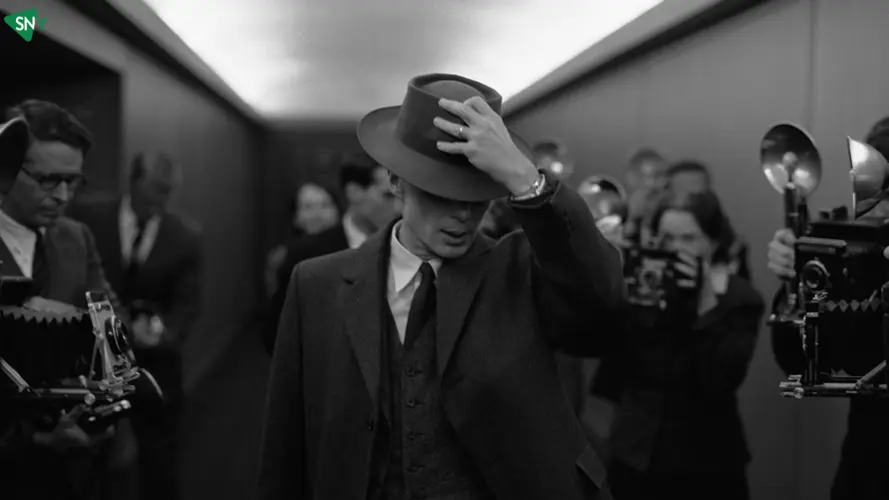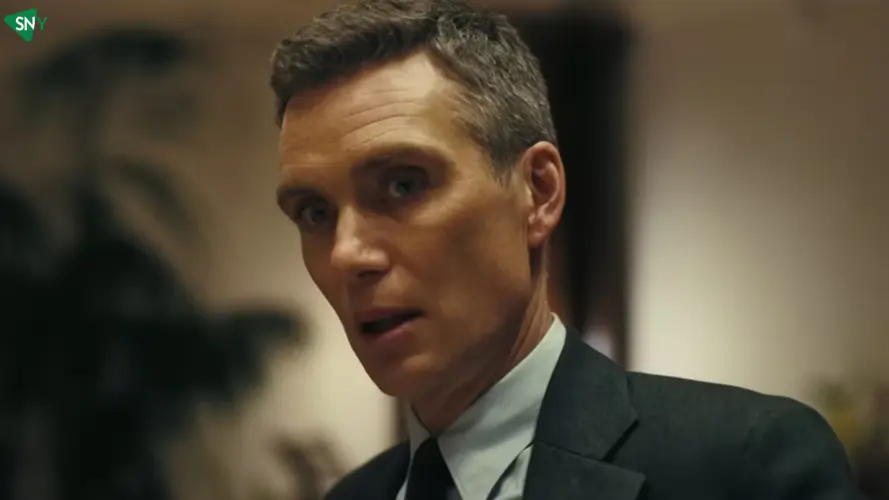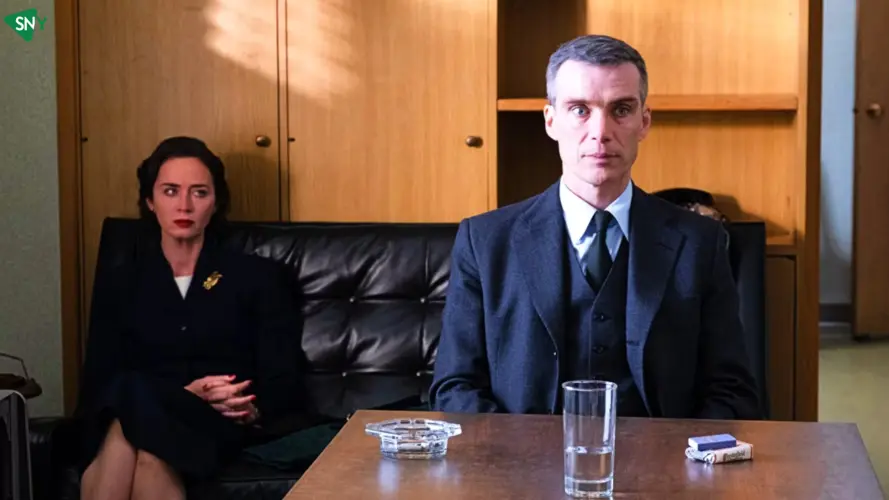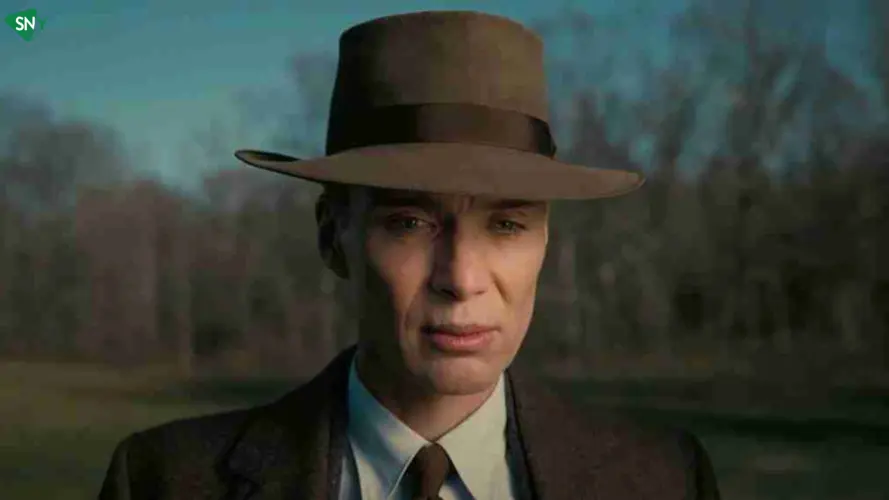In the realm of cinematic brilliance, Christopher Nolan’s 2023 film, “Oppenheimer,” stands as an unparalleled narrative weaving through the intricate tapestry of history. This biographical drama chronicles the life of J. Robert Oppenheimer, portrayed with captivating depth by Cillian Murphy, as he navigates the challenges of the Manhattan Project, the Trinity test, and the political repercussions that follow. As we delve into the compelling quotes that have resonated from this cinematic marvel, we witness the convergence of past and present, philosophy and politics, all encapsulated in a three-hour masterpiece.
12. “Zero would be nice.”
Gen. Leslie Groves
Anxiety permeates the air before the Trinity test, and Oppenheimer’s assurance to General Groves of a “near-zero” chance of global catastrophe introduces a moment of gallows humor. This concise exchange, embedded in levity, accentuates the tension of the unknowns surrounding the atomic blast.

11. “Why limit yourself to just one dogma?”
J. Robert Oppenheimer
Oppenheimer’s refusal to align with a single dogma, eloquently phrased during a Communist Party event, reflects the film’s commentary on open-mindedness amidst political fervor. In a world divided, this line becomes a historical footnote, urging us to consider diverse viewpoints.
10. “We’re not convicting – just denying.”
Lewis Strauss
Lewis Strauss, portrayed by Robert Downey Jr., delivers a duplicitous line as he conspires against Oppenheimer. This quote encapsulates Strauss’ vindictive nature, a theme that echoes throughout the film, culminating in a poignant realization of denial over conviction.
9. “Is anyone ever going to tell the truth?”
J. Robert Oppenheimer
Cillian Murphy’s portrayal captures Oppenheimer’s frustration and confusion during a private trial. The line encapsulates the absurdity of Oppenheimer’s predicament, highlighting his struggle to reconcile the methodical world of science with the unpredictable dance of politics.

8. “Why won’t you fight?”
Katherine “Kitty” Oppenheimer
Emily Blunt’s portrayal of Kitty Oppenheimer unveils the underlying heart of the narrative. This poignant question challenges Oppenheimer to confront his moral attitudes post-Trinity test, emphasizing the struggle to object to history as it unfolds.
7. “No, just a shoe salesman.”
Lewis Strauss
A seemingly benign meeting between Oppenheimer and Strauss conceals the ignition of vindictive hatred. Strauss’ retort to Oppenheimer’s accidental slight sets the tone for their volatile connection, foretelling the intensifying animosity throughout the film.
6. “Hiroshima isn’t about you.”
President Harry S. Truman
Oppenheimer’s visit to President Truman unveils the disconnect between public perception and personal guilt. Truman’s dismissive response encapsulates the film’s exploration of the politicians’ ignorance regarding the gravity of the nuclear bomb’s invention and use.

5. “They won’t fear it until they understand it, and they won’t understand it until they’ve used it.”
J. Robert Oppenheimer
Oppenheimer’s pessimistic outlook on the politicians’ understanding of the nuclear bomb’s threat reveals the film’s powerful commentary on human nature. The line serves as a damning indictment of the political figures of the time.
4. “You don’t get to commit sin, and then ask all of us to feel sorry for you when there are consequences.”
Katherine “Kitty” Oppenheimer
Kitty Oppenheimer’s damning remark holds thematic weight, addressing the consequences of actions. This powerful line resonates beyond the moment, reflecting Oppenheimer’s guilt and the broader implications of his work on the Manhattan Project.
3. “Now I am become Death, the destroyer of worlds.”
J. Robert Oppenheimer
Derived from the Bhagavad Gita, this quote encapsulates Oppenheimer’s realization of the magnitude of his creation. Uttered twice in pivotal moments, it bookends Oppenheimer’s journey, marking the shift from intellectual curiosity to architect of human history’s most devastating creation.

2. “Amateurs seek the sun, get eaten. Power stays in the shadows.”
Lewis Strauss
Strauss’ insightful view on power’s true residence becomes a prophetic observation. This line, delivered amidst political maneuvering, foreshadows Strauss’ own downfall, adding depth to the film’s exploration of the intricacies of politics.
1. “I believe we did.”
J. Robert Oppenheimer
In the film’s climactic moment, Oppenheimer’s final words resonate as an iconic reflection on the atomic bomb’s consequences. Murphy’s performance, coupled with the poignant exchange between Oppenheimer and Albert Einstein, delivers a powerful indictment on the state of the modern world.
As we unravel the layers of “Oppenheimer,” each quote becomes a brushstroke, contributing to a cinematic masterpiece that transcends time, leaving an indelible mark on the intersection of history, politics, and human nature.
![12 Best 'Oppenheimer' Movie Quotes [monthyear] Updated](https://www.screennearyou.com/wp-content/uploads/2024/03/welcome-little-one-75.webp)



